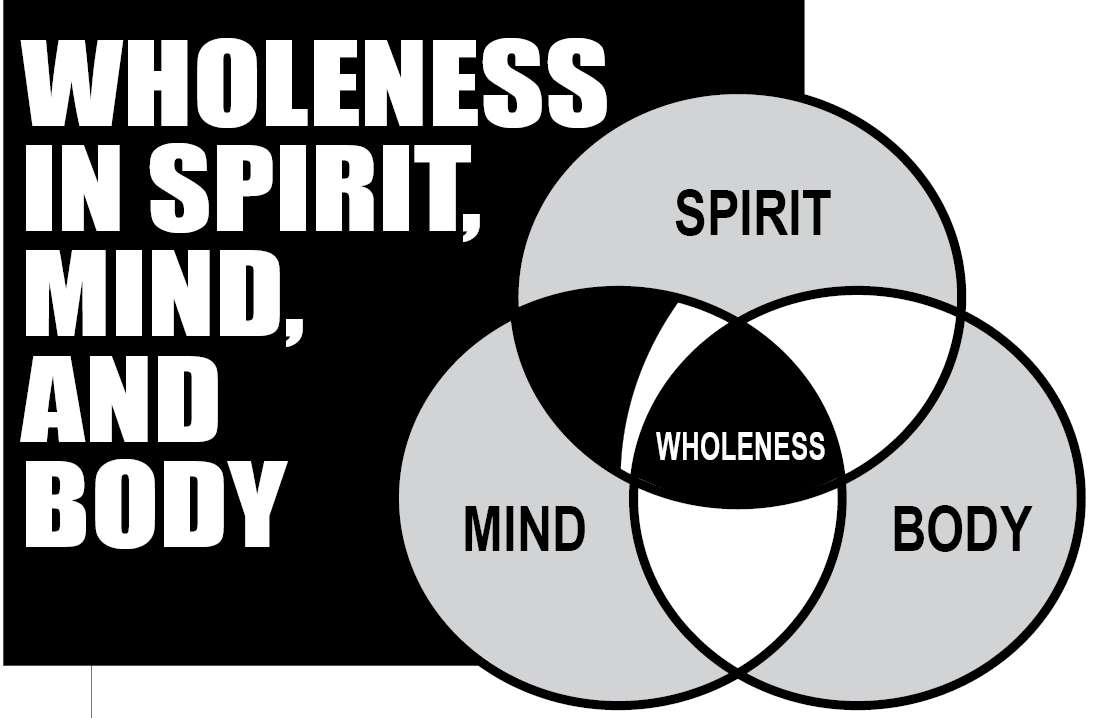
Good Grapes vs. Wild Grapes
Dr. Varughese Philip
We live in a world that symbolizes the peoples' rising expectations and aspiration for freedom to express, choose and do their own thing - and now! In this quest, people seek service satisfaction in all walks of life. All advertisements talk about providing full satisfaction of the customer and delighting the customer. However, marketers who sponsor these advertisements know that to bring satisfaction is a major challenge today. This is seen in other spheres of life too, with the various incidents of socio-political, economic and religious unrest all over the world that indicate the dissatisfaction of the people. The recent Jan Lokpal Bill agitation in India, Wall Street Movement in USA, and political unrest in African and Gulf Regions are examples of dissatisfaction of people all over the world.
Against this backdrop what is it that one can witness or expect in Christendom?
Christians are to serve God, His people and purpose. Satisfaction is paramount in service. God's people enjoy many privileges. God wants them to satisfy Him and His institutions - family, church, and society. The prevailing condition of today's families, church, leadership, and the generations shows the unrest and dissatisfaction among the people. What are the privileges God's people enjoy? What are the causes of dissatisfaction? What are the major challenges to satisfy God and others today?
The Song of Vineyard (Isaiah 5:1-7) expresses the privileges Israelites enjoy and the concern of God to their conditions. They enjoyed the greatest privilege in the fertile land of Canaan (Is 5:2-4). He dug up the land, broke it and prepared to receive the young and tender plant. He cleared off the stones, collected the surface stones into heaps and made a fence around the land. He planted the choicest vine superior to others. He built a watch tower to keep out the jackals, foxes, and robbers. He cut out a wine press with great expectations. The privileges they enjoy show the work God has done for His people. He removed the enemies from the land, separated them from other nations by giving them ceremonial and moral laws, appointed spiritual and political leaders to protect them from enemies and established the temple for daily sacrifices and offerings.
God did everything for the vineyard to produce good fruit. Fruit means primarily, the inherent energy or the visible expression of power working inwardly and invisibly of a living organism to satisfy others. Secondly, fruit represents the offspring, the descendents of Israel (Deut 7:13). Finally, it is the result of an action, the evidence of the character of the power producing it. In a nut shell, good fruit of the vineyard indicates the manifestation of spiritual power working in God's people, the descendents of God's people, and the deeds of God's people. Fruit brings satisfaction to God and to others.
Wild fruit, on the other hand, satisfies the self. It is the hypocritical performance of religion that satisfies the self and the visible expression of the hidden lusts working in the flesh. Moreover, the wild fruit is the wicked generation that turned to build the kingdom of Satan. Furthermore, it is the wrong deeds that reflect the corrupt nature of the privileged people. It is resulting from the state of alienation from God (Col.1:6, 10). Alienation is a sense of rupture so irretrievable that it leads many people to despair. It results in bondage, rebellion, guilt and shame in humans. It affects the life within, destroys the generations, and results in deeds that dissatisfy God and others. God asks the question: What more could have been done for my vineyard than I have done for it? Why did it yield only bad?
This question is relevant to the Church today. God's beloved church is what He invested Himself for - God the Father elected, predestined, and adopted. Work of Christ justified, sanctified, and glorified. Holy Spirit regenerated, baptized, and sealed. He gave His Word for righteous living, innumerable promises and blessed hope to pursue. God raised apostles, prophets, pastors and teachers in the church. Yet, often, in spite of many privileges, promises, and prosperity they serve for self satisfaction, blessings on descendants become a curse, and the works turn to dishonour God. Why does it yield only bad fruit? What are the factors essential to produce good fruit?
1. Relationship With Love and Forgiveness
Satisfying relationship with God and others produce good fruit. God is the owner of the vineyard. The word 'beloved' indicates the relationship with the vineyard (v.1). God is the lover who poured out love for His special vineyard. God made humans for relationship with God, with one another, and with the rest of the created order. Relationship with God, self, and the world provides the fruitfulness. Humans are capable of communicating with others, and emotionally a person experiences and evokes a wide range of feelings and affections. Human relationality applies to the relational order in the family and community. Creation of male and female with encouragement to togetherness shows God's intention of man to be a communal being enjoying personal fellowship with fellow humans.
Rebellion breaks the relationship. Rebellion is inclination to wilfully choose personal desires rather than the will of God. Rebellion affects the relationship with God, family relationship, offspring, and social relations. Strained relationship with God, self, others, and the world affects the fruitfulness. Fractured vertical relationship with God and horizontal relationship with self and others produce bad fruits. Rebellion affects the duties of life. It affects identity, intimacy, industry, and integrity. Eating forbidden fruit was a rejection of the Creator and His will. Bloodshed and cries of distress are due to lack of social relationship. The offspring becomes bad in spite of God's love and special care.
Fruitfulness is related to love and forgiveness. Love is God's commandment in the Scripture and love is giving and not taking. To love God (Deut 6:4-5), neighbours (Matt 22:36-39), brethren (1Jn 4:20), and enemies (Lk 6:35) are fundamentals in Christian life. Sacrifice and self denial are the ways by which God loves the self. God commands us to forgive and disobeying that command can have serious emotional, spiritual, and physical ramifications in our lives. The emotion of bitterness is due to lack of forgiveness. Bitterness depletes nor adrenaline causing clinical depression, strokes or heart attacks and increases one's susceptibility to infection, and results in paranoid disorders. Refusing to forgive means God will not forgive us, we will be tormented and defile our own spirit. Bitterness affects our health and fruitfulness. It breaks our relationship with God, family, church, and society.
2. Religiosity With Character and Contentment
Religiosity produces good fruits. God made a fence around the vineyard. God separated them with ceremonial laws and moral laws to live according to the will of God and Holiness of God. Religiosity is inseparable from Spirit of God and His Holiness. It establishes spirituality and holiness in humans. Humans are radically designed for holiness, which is the sum of all morality. "Wholeness in the Old Testament is conceptually related to the notions of holiness and healthiness". Spiritual health and mental health are inseparably related. The quality of a man being holy is the reflection of God's holiness. Humans possess the ability to discern right and wrong, moral obligation, and personal behavior. Christians are called to be morally pure, righteous, and spiritually transcendent (John 17:14). Individual holiness is result of participation in Christ's body.
Guilt affects the fruitfulness. "Guilt is the state of deserving condemnation or of being liable to punishment because the law has been violated." Guilt distances the soul from God and results in guilt conscience. It affects intimacy towards God and others and blocks the spiritual growth. It leads to worship of false gods and perverts spirituality. Further, guilt pollutes nature and affects right thinking, right living, and reestablishment in the heart of concern for the divine standard of holiness. It leads to idolatry, immorality and depravity. Furthermore, it produces behaviour that contradicts God's perfect design for humanity. The unhealthy aspects of guilt are: it weakens self esteem, and produces depression and compensating behaviour. Living in guilt is an effort to satisfy the demands of conscience without Christ and less sensitive to convicting power of the Holy Spirit (2Cor 7:1). It undermines and destroys the ministry and the community of God's people.
Fruitfulness is related to character and contentment. Good character is from holy living and influences others to transform their lives. Character means, "Mental or moral qualities that makes a person different from others". Character influences the thoughts, values, motivation, attitudes, feelings, and actions. The basis of authority is character, and not position. The character reflects truthfulness. Unholy religiosity makes believers worship materials and moulds immoral behaviours. Contentment means to be completely sufficient or satisfied. Contentment avoids pride in position, ability, achievement, possession, knowledge, achievement, corruption, bribery, and spiritual attainment. There is a great gain in godliness with contentment (1Tim 6:6-10). Contentment in life prepares others for satisfaction. Opposite to contentment is covetousness. "To covet is to seek something, someone, some position, some recognition, or some pleasure not in the will of God. If believers occupy with the things of this world, it is the diversion of mind to unprofitable and temporal things.
3. Rationality With Confession and Care
Rationality produces good fruits. God made a watchtower in the vineyard to keep out jackals and foxes during the fruit yielding season and protect them from thieves and robbers. Watchtower is the shelter for the watchman. It is not a mere hut, but a good accommodation for those who protect the vineyard. God gave watchman rational intuition, implanted in the human heart by general revelation. Rationality involves imagination and intellectualism. Imagination enables the human being to envision possibilities. A watchman possesses a rational mind to know and experience itself, other persons, environment and God. Reason and Word are implicit in logos and are the manifestation of truth. Truth literally means 'un-hiddenness' or an 'openness' signifying the end of concealment and exposure to the light. Intellectual faculties enable believers to grow into the knowledge of God and actualize great potential in humans.
Shame distorts the human reasons and rational process. "Shame is the capacity to feel unworthy as a result of having committed a dishonourable act." Shame leads to self condemnation. Living with a continuing sense of condemnation is stressful. It encourages avoiding emotionally close relationships and leads to a deep seated fear of abandonment and loneliness. The unhealthy attempt to silence the shame affects the rational mind. It is at the root of all addictions and compulsive self defeating behaviours. The antithesis of shame is transparency and genuineness. Language is the vehicle of rational communication. Illogical communication may produce wild fruits. It destroys the families, church and the personality of believers.
Fruitfulness is related to confession and care. Confession before God is essential for satisfying God. Transparency is an imperative quality of a Christian. Accountability in personal life and integrity produce fruit in Christian life. Those who live in openness survive mistakes best. Genuine concern for others produces good fruits. The concern includes feeding, watching, guarding, leading, healing, rescuing, ruling, and comforting. Those with genuine concerns sacrifice personal interest for the sake of others and do not run away when they see danger. Parent's failure to confess and lack of concern bring shame to the children and causes them to bring forth bad fruit. They transmit shame to the next generation. A leader's shame affects the church and the coming generations. It leads the church into heresies and opens the generations to leave the church or come under the attack of enemies.
4. Responsibility With Commitment and Charisma
Taking on responsibility produces good fruits. God planted the choicest wine superior to others in the most beautiful land which has ability to produce the best fruit. Superior quality fruit indicates dominion and can be accepted as a duty and exercised by incorporating responsibility. Exercising authority while being submissive to a higher authority is a characteristic that will produce good fruit. Further, it shows that it possesses the capacity to propose and choose worthy goals and strategies to achieve goals. Dominion is part of our destiny to live in fellowship with God, human community as whole, and with natural order. God wants from his people a responsible action in response to God's commission to produce fruit.
Bondage deviates human minds to act in an irresponsible way. Bondage represents the areas of spiritual, mental, physical and emotional lives that are controlled by sin and its traumatic results. Selfish use of freedom leads to bondage. Freedom is to be exercised in the realm of obedience to the command of God. Selfish use of authority and perversion of authority over the creation frustrate the purpose of God. Luther affirms that human will is bound by sin in the spiritual realm and is a captive, slave, and servant either to the will of God or to the will of Satan. Human exercise of freedom without God leads to bondage. The abuse of freedom results in bondage. Bondage affects the human choice. Irresponsible exercise of authority may result in bad fruit.
Fruitfulness is related to responsible commitment and charisma. Commitment is to do or perform regardless of road blocks. It is working hard to bring forth changes to produce fruit. Charisma is the "gift of grace, or unearned and unmerited favour in direct antithesis to work." The early Christians expressed effectiveness through the use of the words charisma and chrisma, that is, spiritual giftedness and anointing. Charisma gives strength to the body, mind and spirit to serve others. It is people centred and there is no room for abuse of authority. Holy Spirit gives Spiritual Gifts that enables the Christians to become sensitive to the needs of others. Commitment to responsible stewardship of personal resources such as life, time, money, possessions, and strength and spiritual resources such as spiritual gifts and anointing will produce fruit for eternity.
Conclusion
Producing fruit must bring satisfaction to others. Good fruit satisfies God and wild fruit satisfies self. Imprint of image enables humans to produce good fruit. Renewed image produces fruit that satisfies God and others. Relationship, religiosity, rationality and responsibility are the God given enablement inherent in all humans to produce good fruit. Rebellion, guilt, shame and bondage affect the whole being and produce wild fruit affecting the personal spiritual life also of the family, children, church, and society.
Are we producing good fruit or wild ones is a question we need to ask ourselves. The question is applicable to all believers anointed by God to serve Him, all leaders called by God for servant leadership, all of us playing different roles in our families and all people appointed for responsible stewardship in the Kingdom of God. What will be our response?




